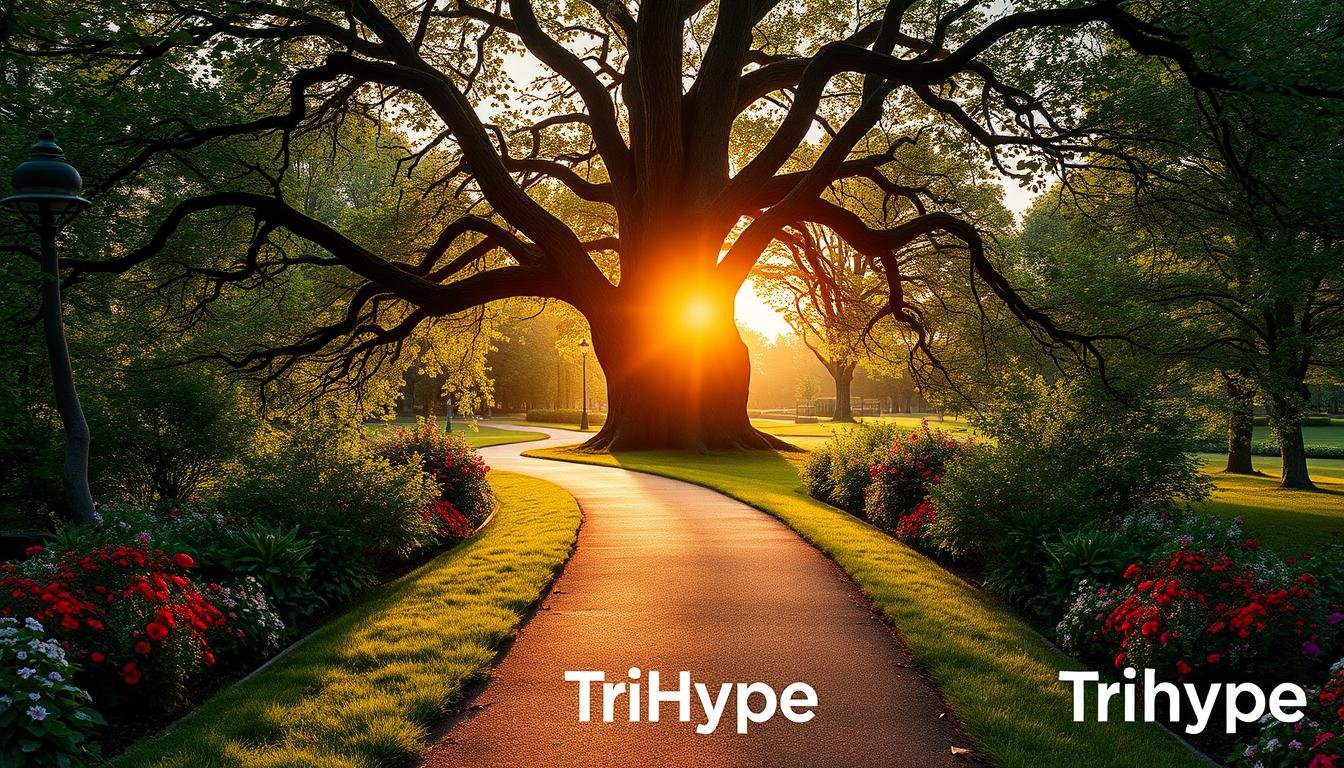Relationship Growth Strategies are key to building lasting connections. “The greatest gift you can give another is the purity of your attention.” – Richard Moss, author and spiritual teacher. This quote highlights the value of deep connections in our closest relationships. It shows how crucial it is to have strategies for growth, intimacy, and a strong partnership.
In this article, we’ll dive into effective strategies for couples to strengthen their bond. We’ll cover improving communication, building trust, and managing conflicts. You’ll learn how to create a fulfilling relationship through practical techniques.
Key Takeaways
- Effective communication and active listening are foundational for relationship growth
- Building trust and intimacy is essential for a thriving partnership
- Constructive conflict resolution approaches can help couples navigate disagreements
- Nurturing emotional connection through quality time and shared experiences is crucial
- Cultivating personal growth and self-awareness benefits the entire relationship
The Importance of Effective Communication
Effective communication is key to a healthy relationship. When couples talk openly, listen well, and show empathy, they understand each other better. This helps them solve problems and grow closer emotionally. We’ll look at the main parts of good communication and how to use nonviolent methods for a better partnership.
Active Listening and Empathy
At the core of good communication is active listening and empathy. Active listening means focusing fully on your partner and trying to see things from their point of view. It’s about reflecting back what you’ve heard to make sure you get it right. Showing empathy lets you connect with your partner’s feelings and respond with kindness, even when things are tough.
Nonviolent Communication Techniques
Nonviolent communication (NVC) helps couples talk about their needs and feelings in a way that works. It uses “I” statements to share your thoughts and feelings, not “you” statements that blame. This way, you can understand each other better and solve problems together without getting defensive.
Learning to listen actively, empathize, and use nonviolent communication can make your relationship safe and supportive. These skills are crucial for building trust, closeness, and respect in your relationship.

| Communication Technique | Description | Benefits |
|---|---|---|
| Active Listening | Fully focusing on your partner, seeking to understand their perspective, and reflecting back what you’ve heard | Promotes mutual understanding, builds trust, and strengthens emotional connection |
| Empathy | Connecting with your partner’s emotions and responding with compassion | Fosters a sense of being heard and understood, enhancing intimacy |
| Nonviolent Communication | Using “I” statements to express needs and feelings, rather than accusatory “you” statements | Encourages collaborative problem-solving and avoids defensive reactions |
By using these communication techniques, active listening, empathy, and nonviolent communication, you and your partner can build a strong relationship. This foundation of trust, closeness, and understanding is key to a happy and lasting partnership.
Building Trust and Intimacy
Building trust and intimacy is key to a strong relationship. These elements help partners feel safe and understood. By using smart strategies, couples can build a strong trust base, encourage vulnerability, and grow their intimate connection.
Start by talking openly and honestly. Listen well, validate each other’s feelings, and create a space free from judgment. This helps partners share their deepest thoughts and fears. Such emotional connection is vital for a strong relationship.
- Actively listen and empathize with your partner’s experiences and perspectives.
- Foster a safe environment where both individuals feel comfortable expressing themselves without fear of criticism or rejection.
- Engage in vulnerable, heart-to-heart conversations that deepen your understanding of one another.
Also, spend quality time together, show physical affection, and share experiences. These actions show your commitment and strengthen your bond of trust and intimacy.
“The greatest gift you can give another is the purity of your attention.” – Richard Moss
By focusing on trust and intimacy, partners can face relationship ups and downs with confidence. This foundation helps them overcome challenges, grow together, and build a fulfilling partnership.

Managing Conflicts and Disagreements
Conflicts and disagreements happen in all good relationships. The important thing is to handle them well. This means solving problems together and finding common ground. Learning how to resolve conflicts can make a relationship stronger.
Constructive Problem-Solving Approaches
When a conflict arises, it’s key to listen with empathy and communicate openly. Understanding each other’s views is crucial. Here are some ways to solve problems:
- Listen actively to grasp your partner’s worries and needs
- Find the real reason behind the issue, not just the surface-level
- Think of new solutions that work for both of you
- Focus on finding a solution that works for both, not placing blame
Compromise and Finding Common Ground
Resolving conflicts often means finding a middle ground. It’s about being open to your partner’s view and flexible. By focusing on what you both want, you can solve problems together.

“The greatest weapon against stress is our ability to choose one thought over another.” – William James
Learning to manage conflicts is key for a lasting, happy relationship. By solving problems together and compromising, you can grow closer. This way, you can face challenges with a stronger bond and commitment.
Nurturing Emotional Connection
Keeping a strong emotional bond is key to a happy relationship. By knowing each other’s love languages and spending quality time, we can grow closer. This builds a deep sense of closeness and intimacy.
Understanding Love Languages
Dr. Gary Chapman introduced the idea of love languages. He said people have different ways they like to show and receive love. Some feel loved through acts of service, while others love quality time or physical touch.
By knowing and meeting each other’s love languages, we can fulfill our partner’s emotional needs. This helps us build a stronger emotional connection.
Quality Time and Shared Experiences
In today’s busy world, it’s easy to forget about our relationships. But, making time for each other is crucial. Spending quality time talking, trying new things, and just being together can deeply impact our emotional connection.
Creating shared experiences brings us closer. It strengthens the emotional base of our relationship.
“The greatest gift you can give another is the purity of your attention.” – Richard Moss
Building an emotional connection takes effort, empathy, and a focus on our partner’s needs. By understanding love languages and valuing quality time and shared experiences, we can make our relationship thrive.

Personal Growth and Self-Awareness
Personal growth and self-awareness are key to a strong relationship. They help individuals develop and reflect on themselves. This way, couples can grow emotionally and build a solid partnership.
Self-awareness is the base of personal growth. It lets us understand our thoughts, feelings, and actions. This understanding helps us communicate better and solve problems together.
- Regularly engaging in self-reflection through journaling, meditation, or other practices can help deepen our self-awareness.
- Seeking out opportunities for personal development, such as workshops or counseling, can also support our growth and enhance our ability to contribute positively to the relationship.
Emotional intelligence is also vital for a strong relationship. It helps us manage our and our partner’s emotions. This way, we can handle relationship ups and downs with empathy and care.
“The ability to understand and manage our own emotions, as well as those of our partner, is a powerful tool for building a healthy, lasting relationship.”
Investing in personal growth and self-awareness benefits us and our relationship. It leads to deeper connections, better conflict resolution, and a more fulfilling partnership.

Relationship Growth Strategies
Building a strong relationship takes effort from both sides. We’ll look at ways to set goals, build commitment, and stay accountable. These steps help your relationship grow and last long.
Goal-setting is a key part of growing together. Setting clear goals helps you and your partner work towards a common future. Goals can be about better communication, deeper emotional connection, or reaching life milestones.
- Work together to set SMART (Specific, Measurable, Achievable, Relevant, and Time-bound) goals for your relationship.
- Keep checking and updating these goals to match your changing needs and dreams.
- Celebrate small victories to stay excited and see how far you’ve come.
Mutual commitment is also vital. It’s more than just staying together. It’s about truly caring for each other and growing your relationship together.
- Talk about your shared values, what’s important to you, and your dreams for the future.
- Always make your relationship a priority, even when life gets busy.
- Openly share your thoughts, feelings, and any problems you’re facing.
Accountability is key to keeping your relationship strong. By being responsible for your promises, you ensure your relationship stays important. This way, both partners actively work towards a successful partnership.

“The key to a healthy, thriving relationship is a shared commitment to continuous growth and improvement.”
By using these strategies, you and your partner can face challenges together. You’ll strengthen your bond and build a lasting, fulfilling relationship.
Establishing Healthy Boundaries
In any thriving relationship, setting healthy boundaries is key. It’s important to respect each partner’s needs and freedom. Finding the right balance between alone time and being together is a delicate but rewarding task.
Respecting Individual Needs and Autonomy
Every person in a relationship has their own needs and boundaries. It’s the base for a healthy, lasting partnership. Talking openly about your needs, like needing alone time or wanting to do your own thing, is crucial. This way, both partners feel valued and supported.
- Communicate your personal boundaries and needs clearly with your partner.
- Respect your partner’s individual preferences and give them the freedom to explore their own interests.
- Avoid making assumptions or imposing your own needs on your partner without their consent.
When couples find a healthy balance between their own identities and shared moments, they do well. They grow as individuals and as a team.
“The greatest gift you can give someone is your own personal development. I used to say, ‘If you will take care of me, I will take care of you.’ Now I say, ‘I will take care of me for you, if you will take care of you for me.'” – Jim Rohn
By setting healthy boundaries, you and your partner can build a balanced relationship. This relationship supports both individual needs and autonomy. This foundation of mutual respect and understanding will help your relationship grow and flourish over time.
The Role of Couple Counseling
Seeking couple counseling can really help your relationship grow. It’s a chance to talk better, solve problems, and grow together. This therapy is all about making your partnership stronger.
Couple counseling helps you talk openly and honestly. A therapist guides you through tough talks. They help you understand each other better and feel closer.
This therapy is great for tackling big issues like trust problems or money worries. A professional helps you find ways to work through these issues. You’ll learn to communicate better and find solutions together.
It’s not just for couples in trouble. Even happy couples can benefit from therapy. Going to relationship therapy regularly keeps your relationship strong. It prepares you for any future challenges.
When looking for couple counseling, find a licensed therapist. Choose someone who knows a lot about relationships. With the right help, you and your partner can grow closer and face challenges together.
“Couple counseling is not about fixing a broken relationship; it’s about creating a stronger, more fulfilling partnership.” – Dr. Jane Doe, Relationship Therapist
Cultivating Patience and Forgiveness
Relationships need patience and forgiveness to grow. We face challenges and mistakes along the way. By being patient and forgiving, we can build strong, lasting bonds.
Letting go of resentment is key to a healthy relationship. Resentment can destroy our connections with negativity. But embracing forgiveness helps us move past bitterness and find understanding.
Forgiveness is hard but essential. It means letting go of our need to be right for the relationship’s sake. With patience and understanding, we can handle any issue that comes up.
- Recognize that mistakes are a natural part of any relationship.
- Approach conflicts with an open mind and a willingness to compromise.
- Communicate your needs and concerns in a constructive manner, avoiding accusations or blame.
- Actively listen to your partner’s perspective, seeking to understand rather than to defend.
- Remind yourself that the health of the relationship is more important than being right.
Patience and forgiveness create a space of trust and respect. It’s a journey of self-awareness and emotional growth. By letting go of resentment and embracing understanding, we strengthen our bonds and become more resilient.
“Forgiveness is the fragrance that the violet sheds on the heel that has crushed it.” – Mark Twain
Maintaining Romance and Passion
Keeping romance and passion alive is key for a happy relationship. As time goes by, it’s important to find ways to keep the spark going. This means being spontaneous and keeping the emotional and physical connection strong.
Keeping the Spark Alive
Quality time together is crucial. Be spontaneous by planning surprise dates or weekend trips. Also, try new things together to keep things exciting.
Being thankful and showing appreciation for your partner is also vital. Tell them what you love and value about them. This can make your bond stronger and more intimate.
| Strategies for Keeping the Spark Alive | Benefits |
|---|---|
| Prioritize quality time together | Strengthens emotional and physical intimacy |
| Embrace spontaneity and try new experiences | Reignites a sense of excitement and adventure |
| Express gratitude and appreciation | Fosters deeper connection and feelings of being valued |
By focusing on romance, passion, and intimacy, you can enjoy the ups and downs of a long-term relationship. It brings joy and fulfillment to your bond.
“The greatest thing you’ll ever learn is just to love and be loved in return.” – Moulin Rouge
Developing Emotional Intelligence
Relationships are complex, and emotional intelligence is key. We’ll look at ways to grow emotional self-awareness, empathy, and emotional control. These skills help make a relationship stronger and more rewarding.
Emotional intelligence, or EQ, helps us understand and manage our emotions well. By knowing our feelings, we can act more wisely. Empathy, or feeling and sharing others’ emotions, is also vital for deep connections and solving problems together.
Learning to control our emotions is crucial. It means managing stress, avoiding impulsive actions, and staying calm in tough times. When we can handle our emotions, we talk better, compromise more easily, and find common ground with our partner.
| Key EQ Skills | Benefits for Relationships |
|---|---|
| Self-awareness | Improved self-understanding and communication |
| Empathy | Enhanced compassion and conflict resolution |
| Emotional regulation | Better stress management and problem-solving |
By improving these emotional skills, we can create stronger, more lasting relationships. These relationships can handle life’s ups and downs together.
“Emotional intelligence is the ability to identify and manage your own emotions and the emotions of others.”
Enhancing Emotional Self-Awareness
To start improving emotional intelligence, we need to understand our own feelings better. This means regularly checking in with ourselves, thinking about our emotional responses, and figuring out what makes us react. By being more aware of our emotions, we can manage them better and share them openly with our partner.
Conflict Resolution in Relationships: Expert Tips
Navigating Relationship Transitions
Relationships change as life does. We must adapt and grow together. By doing so, we can face relationship transitions with strength and unity.
Keeping the lines of communication open is key. We need to talk openly, share our feelings, and listen to each other. This helps us stay connected and move forward together.
It’s also important to be open to new experiences and challenges. Trusting in our ability to overcome obstacles helps us grow. This way, we can face changes with hope and a stronger bond.
